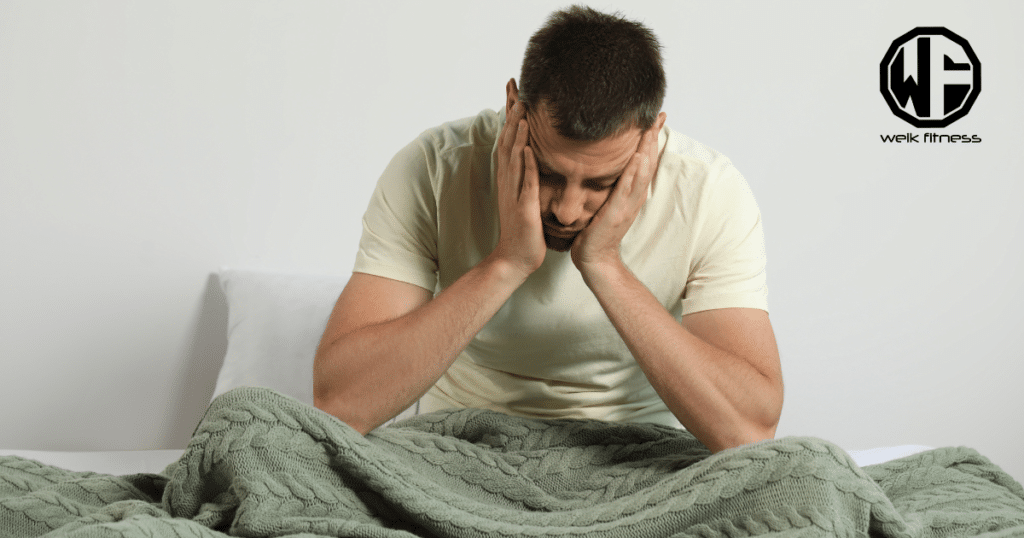New Research Shows Some Good News For the Sleep Deprived
Do you think you’re sleep deprived? You’re not alone!
Who doesn’t like sleep? Those fond memories of college where you could sleep in till noon without a care in the world so long as you didn’t have an early morning class. You’d stay up all night partying as if the morning would never come. OK, I’m getting sidetracked — daydreaming of the good old days. These days alarm clocks wake us up early and we’re off to work with the masses like Bill Murray in Groundhog Day. Many of us, unfortunately, become sleep deprived.
Disclaimer: This article is for informational purposes only and is not meant to treat or diagnose any condition. It is recommended that you speak with your doctor before starting any exercise program, changing your daily nutrition, or adding any supplements to your regimen.
What Does It Mean to Be Sleep Deprived?

Being sleep deprived means not getting enough sleep, which can negatively impact physical health, mental well-being, and overall functioning. Here’s a breakdown of what sleep deprivation entails and its effects:
Sleep Deprived Definition
Being sleep deprived occurs when an individual consistently fails to get the recommended amount of sleep, which varies by age:
- Adults: 7-9 hours per night
- Teenagers: 8-10 hours per night
- Children: 9-12 hours per night
- Toddlers and infants: 12-16 hours per night
Causes of Sleep Deprivation
- Lifestyle Factors: Work schedules, social activities, caregiving responsibilities.
- Medical Conditions: Insomnia, sleep apnea, restless legs syndrome.
- Mental Health Issues: Anxiety, depression, stress.
- Environmental Factors: Noise, uncomfortable sleeping conditions, light pollution.
- Substance Use: Caffeine, alcohol, nicotine, certain medications.
Symptoms of Sleep Deprivation
- Physical: Fatigue, yawning, reduced coordination, weakened immune system.
- Cognitive: Impaired memory, difficulty concentrating, decreased problem-solving skills.
- Emotional: Irritability, mood swings, increased stress levels.
- Behavioral: Increased risk of accidents, reduced productivity, poor decision-making.

Short-Term Effects of Sleep Deprivation
- Reduced cognitive abilities
- Mood disturbances
- Impaired judgment and decision-making
- Increased risk of accidents
Long-Term Effects of Sleep Deprivation
- Physical Health Issues: Hypertension, heart disease, diabetes, obesity.
- Mental Health Issues: Anxiety, depression, increased stress levels.
- Cognitive Decline: Memory issues, reduced attention span, diminished learning capabilities.
Sleep Deprivation Management and Prevention
- Sleep Hygiene: Establish a regular sleep schedule, create a restful environment, avoid screens before bedtime.
- Lifestyle Changes: Limit caffeine and alcohol, exercise regularly, manage stress.
- Medical Interventions: Seek treatment for sleep disorders, use prescribed sleep aids as directed.
- Cognitive Behavioral Therapy (CBT): For chronic insomnia, CBT can be effective in changing sleep habits and addressing underlying issues.
Are You Sleep Deprived?

New research has surfaced regarding the use of gamma-aminobutyric acid (GABA) in regards to helping you fall asleep and stay asleep so you’re not sleep deprived. There are many people who have trouble falling asleep at night (this could be you). They toss and turn and wind up getting very little sleep (sleep deprivation) — getting up each morning looking like one of the zombies from The Walking Dead television series.
Good news! Insomniacs and the sleep deprived will be jumping for joy with this most recent study conducted by a company in Japan.
The sleep aid category is growing at an astounding 27% and they are expecting sales to exceed $732 million by the year 2018. A 2014 survey conducted by Datamonitor Consumer found that insomnia is actually tied for fourth place in terms of health issues Americans suffer from. With the addition of a GABA supplement, those who are sleep deprived might finally be able to get some restful sleep.
This particular study published in Food Science and Biotechnology was conducted by having ten participants who showed a very high probability of having a sleep disorder (according to the Pittsburgh Sleep Quality Index–PSQI) supplement with a product that contained GABA. Researchers looked into how quickly the GABA was absorbed into the system by using a blood analysis. Findings from the blood analysis showed that GABA was absorbed very quickly (within 30 minutes) after ingestion of the supplement.
Click here to continue reading…


*Disclosure: This article may contain affiliate links or ads, which means we earn a small commission at no extra cost to you if you make a purchase through these links. These commissions help support the operation and maintenance of our website, allowing us to continue producing free valuable content. Your support is genuinely appreciated, whether you choose to use our links or not. Thank you for being a part of our community and enjoying our content.
PLEASE CONSIDER SHARING THIS ON YOUR SOCIAL MEDIA TO HELP OTHERS LEARN MORE ABOUT THIS TOPIC.




